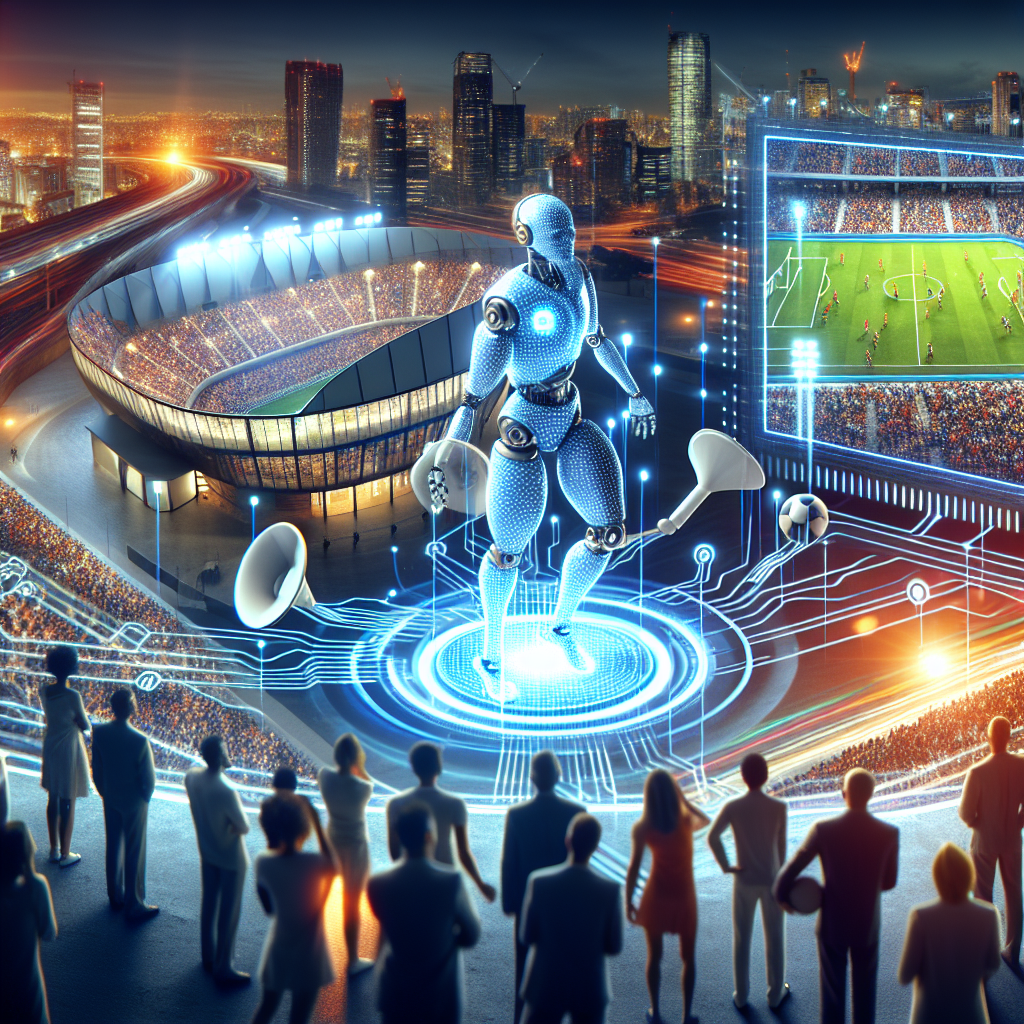In today’s digital age, sports marketing has become more competitive than ever. With the rise of social media and online advertising, brands are constantly looking for new ways to connect with fans and drive engagement. One of the most effective strategies for achieving this is leveraging artificial intelligence (AI) in sports marketing campaigns.
AI has the ability to analyze large amounts of data quickly and accurately, allowing marketers to target specific audiences with personalized messaging. This can help brands reach fans in a more meaningful way, ultimately driving brand awareness and loyalty. In this article, we will explore how AI can be used to enhance sports marketing campaigns and provide some frequently asked questions about this emerging technology.
How can AI be used in sports marketing campaigns?
AI can be used in a variety of ways to enhance sports marketing campaigns. Some of the key applications include:
1. Personalized messaging: AI can analyze data on fan preferences, behavior, and demographics to create personalized marketing messages. This can help brands connect with fans on a more personal level, increasing engagement and loyalty.
2. Predictive analytics: AI can analyze past performance data to predict future outcomes and trends. This can help marketers make more informed decisions about where to allocate resources and which campaigns are likely to be most successful.
3. Content creation: AI can be used to create and curate content that is tailored to specific audiences. This can help brands deliver relevant and engaging content that resonates with fans.
4. Chatbots: AI-powered chatbots can provide instant customer service and support to fans, answering questions and providing information in real-time. This can help brands improve the fan experience and build stronger relationships with their audience.
5. Sponsorship optimization: AI can analyze data on fan engagement with sponsorships to help brands optimize their partnerships and maximize ROI. This can help brands make more strategic decisions about which sponsorships to pursue and how to leverage them effectively.
What are the benefits of using AI in sports marketing campaigns?
There are several key benefits to using AI in sports marketing campaigns, including:
1. Improved targeting: AI can help brands target specific fan segments with personalized messaging, increasing the likelihood of engagement and conversion.
2. Enhanced fan experience: AI-powered chatbots and personalized content can help brands provide a more seamless and engaging fan experience, building loyalty and trust.
3. Increased efficiency: AI can analyze data quickly and accurately, freeing up marketers to focus on strategy and creative execution. This can help brands save time and resources while improving campaign performance.
4. Data-driven decision-making: AI can provide valuable insights and predictive analytics to help marketers make more informed decisions about their campaigns. This can lead to better results and ROI.
5. Competitive advantage: As more brands adopt AI in their marketing strategies, those that leverage this technology early on can gain a competitive edge in the market.
What are some examples of successful AI-powered sports marketing campaigns?
There have been several successful AI-powered sports marketing campaigns in recent years. Some notable examples include:
1. NBA’s partnership with Second Spectrum: The NBA partnered with Second Spectrum, a company that uses AI to analyze basketball games and provide real-time insights to fans. This partnership has helped the NBA enhance the fan experience and drive engagement through personalized content and predictive analytics.
2. Adidas’ use of AI in influencer marketing: Adidas used AI to identify micro-influencers who were most likely to resonate with their target audience. This helped the brand create more authentic and impactful influencer partnerships, leading to increased brand awareness and sales.
3. IBM’s partnership with Wimbledon: IBM partnered with Wimbledon to create an AI-powered chatbot that provided real-time updates and information to fans during the tournament. This chatbot helped enhance the fan experience and build excitement around the event.
4. Manchester City’s use of AI in content creation: Manchester City used AI to create personalized video content for fans, based on their preferences and behavior. This helped the club drive engagement and build relationships with fans in a more meaningful way.
What are some common misconceptions about AI in sports marketing?
There are several common misconceptions about AI in sports marketing, including:
1. AI is only for large brands: While AI can be a powerful tool for large brands with big budgets, it can also be accessible to smaller brands through AI-powered platforms and tools. Many AI solutions are scalable and customizable, making them suitable for brands of all sizes.
2. AI is impersonal: Some people believe that AI-powered campaigns lack the personal touch of human interaction. However, AI can actually enhance personalization by analyzing data on fan preferences and behavior to create tailored messaging and content.
3. AI is too complex to implement: While AI can be complex, there are many AI-powered platforms and tools that are user-friendly and easy to implement. Brands can work with AI experts and consultants to help them navigate the technology and optimize their campaigns.
4. AI is a one-time investment: AI requires ongoing monitoring and optimization to deliver the best results. Brands must continually analyze data, test campaigns, and adjust strategies to ensure success with AI-powered marketing campaigns.
In conclusion, AI is a powerful tool that can help brands enhance their sports marketing campaigns and drive engagement with fans. By leveraging AI for personalized messaging, predictive analytics, content creation, chatbots, and sponsorship optimization, brands can improve targeting, enhance the fan experience, increase efficiency, make data-driven decisions, and gain a competitive advantage in the market. While there are some common misconceptions about AI in sports marketing, brands that embrace this technology early on can reap the benefits and stay ahead of the competition.

